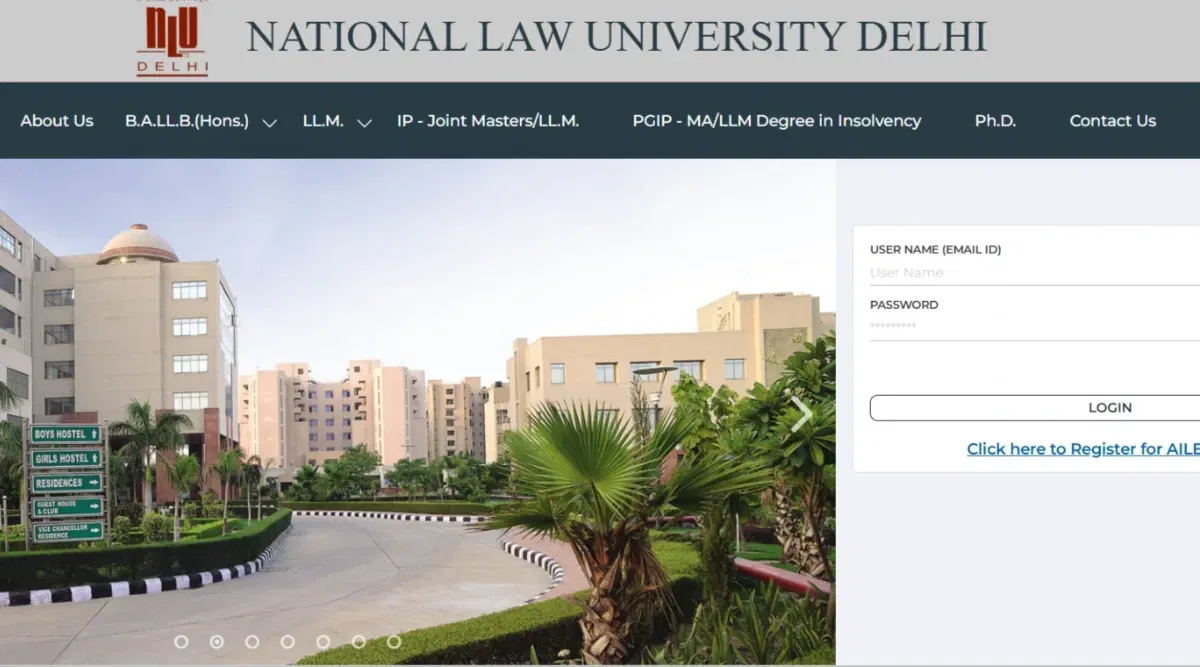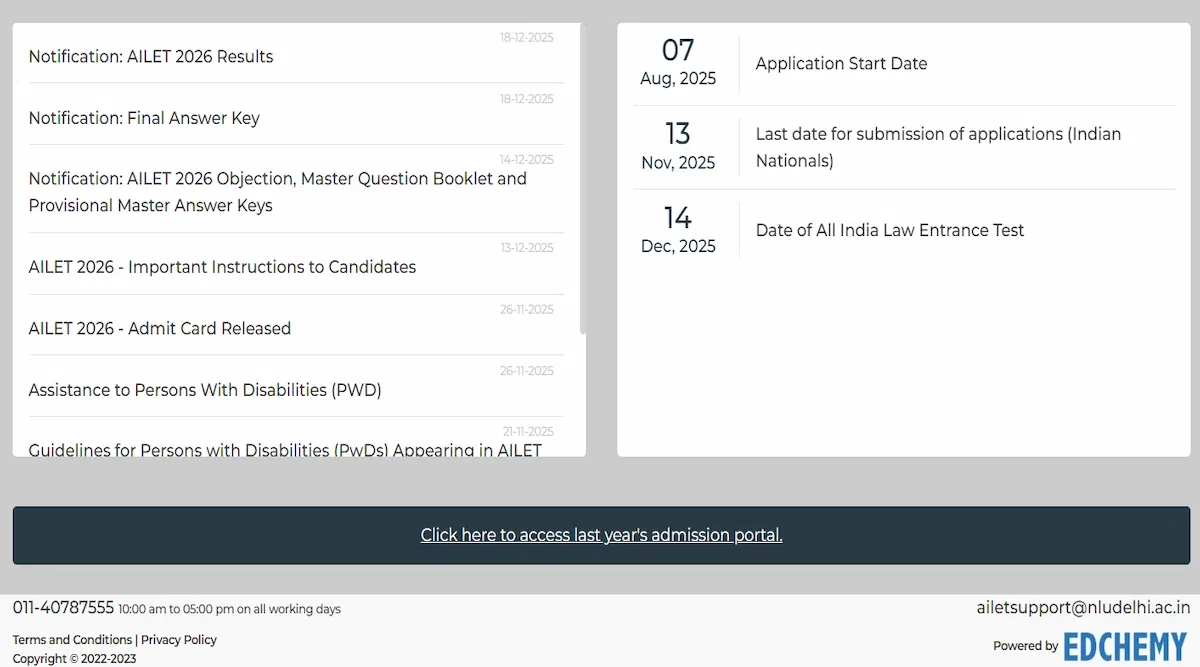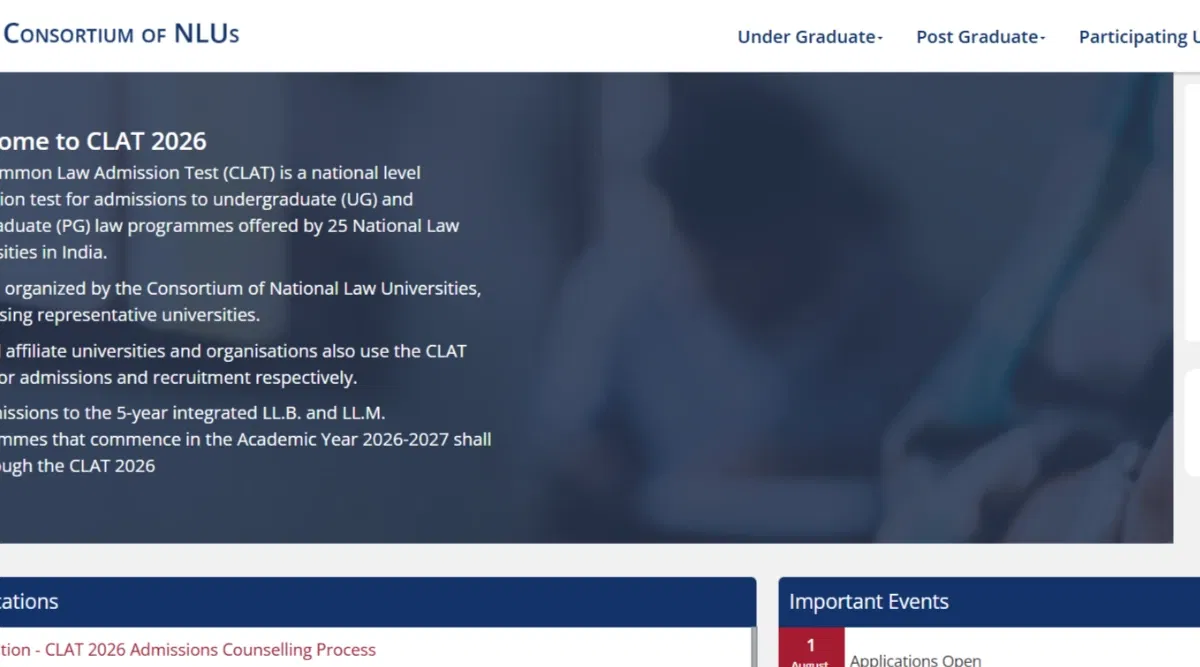Candidates confused between choosing NLU and private law colleges must consider the important parameters such as fees structure, higher quality education, infrastructure, internship opportunities.
Table of Contents
Choosing Between NLU and Private Law Colleges: There are benefits and drawbacks to both NLU and private law schools, i.e. it can be a fantastic chance to get a top-notch legal education and improve employment chances if a student can into a reputable NLU with less tuition fees on the other hand, private law schools offer better infrastructure, multiple specialisation.
It's important to conduct thorough research, visit the campuses, assess their programs, and make a decision based on your priorities.
The cost structure is one of the main distinctions between attending a private institution and the National Law University. NLUs are supported by government funding and have status as government universities, NLUs have extremely inexpensive tuition. In contrast to NLUs, some private law schools do, nevertheless, charge reduced tuition.
Also Check: How to Choose the Right NLU After CLAT 2026?
Pros of Studying at National Law University (NLU)
The pros of studying at National Law University include high-quality education, exposure to national and international levels, strong networking with alumni and nominal fee structures. These parameters are explained in detail below:
- High-quality Education: NLUs are renowned for their quality curriculum and excellent academic standards. By providing specialised legal programs, they guarantee that NLU law students are getting a top-notch legal education.
- Exposure on a National and International Level: Students from all around India are drawn to NLUs, fostering a vibrant and diverse academic environment. In order to give students exposure to a wider world, numerous NLUs also provide international exchange programs and partnerships with foreign colleges. These students are also given favor in a lot of job interviews, which is incredibly beneficial for pupils.
- Networking Opportunities: Strong alum networks are frequently found at NLUs, which can be advantageous for networking and job prospects. Building a solid network with classmates, instructors, and alums while attending NLUs can help students in their legal careers.
- Nominal fee structure: One of the main benefits of enrolling at an NLU is that, because they are government colleges, their tuition is extremely low due to their subsidized pricing structure.
- Opportunities for Research and a Moot Court Facility: NLUs offer a supportive setting for legal scholarship and research, well-stocked libraries, and chances to work with professors on projects are all available to students. For students, these options provide numerous professional pathways. All NLUs give students the opportunity to compete in national and international moot court tournaments, even if not all of them have moot court facilities.
Also Check: List of NLUs in India
Cons of Studying at National Law University (NLU)
The cons of studying at National Law University include severe workload, limited exploration, non-availability of specialisation and traditional method of instruction accompanied with extreme pressure.
- Severe Workload: At NLUs, the demanding academic program and workload sometimes are too much to handle. Students frequently have a busy schedule since they have to balance a lot of projects, coursework, and moot court tournaments. Students with little work-life balance may experience significant levels of stress and anxiety due to the demanding workload, which includes several assignments, projects, and tests.
- Limited Exploration Time: Students may not have enough time to explore or participate in interdisciplinary subjects due to the rigorous curriculum. They can be forced to ignore other learning chances in favour of concentrating only on their schoolwork.
- Non availability of specialization: NLUs mostly provide B.A.LL.B programs; only a few of India's major National legal Universities (NLUs) provide specialised integrated legal programs in addition to the B.A.LL.B. degree. Thus, a student's options are restricted to a small number of NLUs if they have a particular interest in these specialist programs.
- Traditional methods of instruction: The teaching strategies used in national law universities today may be viewed as outdated and traditional, lagging behind other law schools in adopting innovative and engaging teaching strategies. Students are familiar with contemporary technologies in today's tech-savvy society.
- Extreme pressure: Students may experience extreme pressure to achieve extraordinarily well academically because of the competitive environment at NLUs. This might hinder the learning process by causing feelings of inadequacy or fear of failing.
Also Check: Top Business Law Courses In India
Pros of Studying in private law colleges
The various pros of studying at a private law school include less stress and exposure to real-world legal issues, options of various specialisations available, better infrastructure and much more.
- Various Specialisations: In contrast to NLUs, which primarily provide the basic BA.LL.B program, private universities frequently offer a wider selection of speciality integrated legal degrees, such as B.Com.LL.B, BBA.LL.B, B.Tech.LL.B, and more. Students are able to select programs that better suit their interests and professional aspirations, thanks to this diversity.
- Less stress and exposure to real-world legal issues: Due to their close relationships with the local legal community, Private universities can provide their students with internships, legal aid clinics, and hands-on experience in managing actual court cases. Because they have fewer assignments and flexible attendance regulations, Private students typically have less demanding schedules and lower stress levels, making college more laid back.
- Infrastructure: The infrastructure of NLUs and Privates can differ greatly, and both groups have instances of contemporary, well-equipped buildings. Some Privates may have made more investments in campus amenities and infrastructure, like air-conditioned classrooms and audiovisual instruction.
- Access to knowledgeable NLU faculty: Experienced faculty members who are either NLU graduates or have previously taught at NLUs are frequently found in private law colleges.
Also Read: Top Private Law Colleges in India Accepting CLAT Scores 2026
Cons of Studying from Private Law Colleges
The cons of studying at a private Law colleges are very high fees structure, less internship opportunities and vast curriculum:
- Higher Fees structure: Private Law college’s fees are higher than those of NLUs due to the increased tuition fees, it becomes unaffordable for middle-class or lower-class families.
- Lesser Internship Opportunities: Students must look for internships on their own because many private law colleges don't provide as many as NLUs do. As a result, many students struggle to get internships in this fiercely competitive industry because they lack advice.
- Vast curriculum: There are a lot of events planned at private law colleges. Pupils become so engrossed in these activities that they do not get enough time for their academics.
Also Read: 10 Types of Law Degrees in India























POST YOUR COMMENT